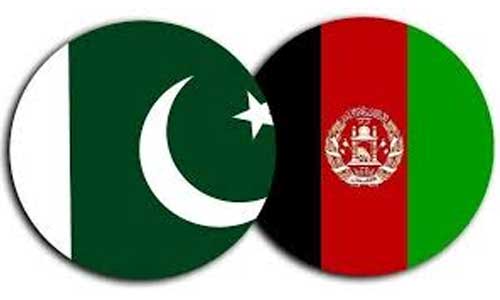The trip of Abdullah Abdullah, the chairman of the Supreme National Reconciliation Council of Afghanistan, to Pakistan and Pakistan’s warm welcome has created new waves of optimism hoping to open a new step of relationship between the two countries. The optimist analysts think that the long erosive war in Afghanistan, which extremely damaged Pakistan’s economy, has finally convinced Pakistan in not reaching their goal through supporting war and conflicts. Meanwhile, the increasing precession of India in Kashmir, internal sectarian movements in Pakistan, pressure of the United States and more importantly the pressure of growing poverty are of the reasons which may link to new position of Pakistan. It is said that Pakistan has nearly $ 60 billion in debt. The Economic pressure and cut-off international assistance, including the United States, has increased in recent years. It seems that Pakistani officials have now realized these issues and want to take practical plans to improve its economic situation and provide resources to repay its huge debts. In this regard, Afghanistan can be a good partner of Pakistan in reduction of poverty, in overcoming institutional difficulties with connecting to a wider regional market.
In spite of the above mentioned facts, there are still some pessimisms that the issues between the two countries are far deeper to be solved this easily. Pakistan is considered as an unambiguous supporter of the Taliban group persisting conflict in Afghanistan. Most explosions in Afghanistan are attributed to ISI of Pakistan. Everybody agrees that Pakistan decisively and vigorously manage the conflict in Afghanistan with undertaking a lot of expenses. In general, the root cause of the conflict between Afghanistan and Pakistan has long history, and deeper to be decided immediately. Thus, no deep changes have been occurred in the mentality of both countries so as to start deeply talks about the root issues. Many of the local analysts believe that Pakistan had not and will not easily change their main views about Afghanistan. Pakistan is blamed for having its strategic depth in Afghanistan which was initially raised in the 80s by General Aslam Baig, head of the Pakistani army headquarters.
The Abdullah Adullah’s visit comes at a time when two Afghan government and Taliban negotiating delegations in Doha, have not yet been able to finalize the procedure for starting inter-Afghan talks after more than 15 days initial meeting about basic principles of the talks. However, global efforts and speeches delivered by heads of international institutions such as the UN Secretary-General, NATO Secretary-General and foreign ministers of more than twenty countries, including Pakistan, suggest that a global consensus has been reached for peace in Afghanistan. But what has so far been raised as a serious question to peace in Afghanistan is about Pakistan’s intention about Afghanistan. No one clearly knows the Islamabad’s motives in relation to war and peace in Afghanistan. Some politicians attribute it to India’s political influence in Afghanistan and Dawran-Line while others ascribe it to other issues such as having its strategic depth in Afghanistan as well as monopoly Pakistan on the water of Afghanistan.
Given the long complexities between the two countries, it is high time that both countries reach on win-win agreement. Kabul should calm down in case Islamabad has any legitimate demand in Afghanistan with ensuring that Afghanistan is not and will not be a headache for Pakistan. On the other hand, Islamabad should prove its honesty in practice as it is not seeking strategic depth in Afghanistan. If this country wants to open a new step of relationship with Afghanistan, it should put pressure on Taliban to announce ceasefire in the country. As the visit of Abdullah, Abdullah has happened after the invitation of Pakistani Prime Minister Imran Khan, it is hoped that Islamabad have changed their perspective about Afghanistan. Given the new changes in the region, it is more probable that the world powers including its traditional ally China has put pressure on Pakistan to slightly modulate their demands and abandoned their strategic depth policy, at least in the short term in Afghanistan. Therefore, Islamabad may put alternative demands on the table of the Afghan government that will cost less than the ongoing war with the Taliban. In that case, some good news may be on way.
In case of such changes in Islamabad’s position, there will be a serious flexibility in the Doha meeting hall and Pakistan will play a positive role in the Afghan peace process. In the past years, Pakistan proved its ability to modulate its policy against Afghanistan. For example, during Mojahedin government, during Taliban regime and after 9/11 event in 2001, Pakistan could mostly modify its position about Afghanistan. So, the recent the media news which quoted form Pakistani Prime Minister’s Office emphasizing the Afghan parties must work to reduce the violence may eventually led to a ceasefire. Reportedly, he stressed that his country will fully supports post-war Afghanistan in the path of economic reconstruction and development.Undoubtedly; any unilateral flexibility will not be enough to overcome the long historic challenges which has imposed huge cost on both countries. The government of Afghanistan should also show its readiness to accept in case they have any genuine concerns or legitimate demand. The people of Afghanistan and Pakistan consider the two countries as their second homes expecting from both governments to pave the way for brotherly relationships between the two countries.
Home » Opinion » Will the New Diplomatic Moves End the Complexities between Afghanistan and Pakistan?
Will the New Diplomatic Moves End the Complexities between Afghanistan and Pakistan?
| Mohammad Zahir Akbari

